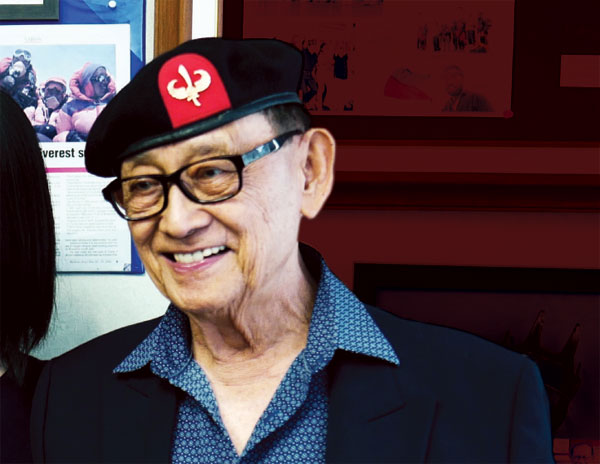Fresh start for ties with China
Updated: 2016-07-01 14:11
By DENG YANZI in Manila(China Daily Asia)
|
|||||||||
 |
|
FIDEL V RAMOS, former president of the Philippines. [Photo by Kenrick Lee/China Daily Asia Weekly] |
An improvement in relations between China and the Philippines is in sight through deeper people-to-people engagement, according to former Philippine president Fidel V Ramos, who has urged the leaders of the two countries to meet soon.
China-Philippines relations could improve in the coming year, the 88-year-old told China Daily Asia Weekly, but the two countries must promote more interaction among young people in areas such as education, art and music.
The new Philippine President Rodrigo Duterte has proposed to open bilateral talks with China after the ongoing arbitration tribunal announces its ruling on the South China Sea dispute. Ramos noted that the two countries had always been in talks through various informal channels despite the recent turbulence in their diplomatic ties.
For example, the business communities of both countries had been engaged in "back-channel" talks to ensure the continuation of trade activities, he noted.
Ramos hopes that Duterte will meet with Chinese President Xi Jinping soon, preferably in his first year as Philippine president. Their cabinet colleagues should also meet at an early date, in his view.
He called for a bigger role for the Philippines under China's Belt and Road Initiative — the strategic Silk Road Economic Belt and the 21st Century Maritime Silk Road trading networks that seek to connect China with Europe, Asia and Africa through closer trade, infrastructure and people-to-people cooperation.
The Philippines is located between two of the most important oceanic trading routes in the world — the Pacific Ocean and the South China Sea. Hence, it should occupy an important place in the Maritime Silk Road, Ramos said.
With regard to the new administration, Ramos believes it is essential for Duterte to build an inclusive economy, which can benefit and empower people in general.
Ramos, who served as president of the Philippines from 1992 to 1998, steered the country during an economic crisis. During his term in office, the annual GDP growth rate averaged 5 percent.
The country is now one of Asia's fastest-growing economies and recorded a GDP growth rate of 6.7 percent in the first quarter of 2016.
However, as the Philippines continues to be plagued by striking socioeconomic inequality, Ramos is concerned about the yawning gap between the rich and poor in terms of income, housing, education, health and longevity.
The Philippine Statistics Authority's figures for 2015 showed that more than 12 million Filipinos, who account for 12 percent of the total population, were living in extreme poverty and unable to afford three meals a day.
The top 10 percent of Filipinos controlled 76 percent of the country's wealth, indicating an alarming wealth gap in the country, according to a Credit Suisse report in 2014.
In his latest book, 2030: One World, One Community, One Family, Ramos detailed 17 sustainable development goals for the world, advocating initiatives for ending poverty and hunger, to global partnerships for sustainable development.
In his view, the Philippines should follow this development agenda in the coming years.
If the Philippines can "spread the benefits of growth", and continue to do so for six to 10 years, including throughout the six-year term of the new Duterte administration, the country can successfully improve people's livelihood, Ramos added.
iris@chinadailyhk.com
Related Stories
Why tribunal's arbitration initiated by the Philippines is against international law 2016-06-30 13:45
The Tribunal's Award in the 'South China Sea Arbitration' Initiated by the Philippines Is Null and Void 2016-06-11 07:47
Chinese Society of International Law releases paper on South China Sea arbitration initiated by the Philippines 2016-06-10 18:41
The tribunal's award in the 'South China Sea Arbitration' initiated by the Philippines is null and void 2016-06-10 14:30
Chinese FM issues statement on settling disputes between China, the Philippines in South China Sea through bilateral negotiation 2016-06-08 09:52
Today's Top News
Boris Johnson quits party leadership contest
UK parties head for leadership battles
Terrorist attack in Turkey reinforces need for unity
New British PM to be in place by Sept 9
Labour's Jeremy Corbyn loeses no-confidence vote
Poll: Migrants viewed as dividing European society
Germany, France, Italy urge Britain not to waste time in divorcing EU
Britain urged not to waste time in divorcing EU
Hot Topics
Lunar probe , China growth forecasts, Emission rules get tougher, China seen through 'colored lens', International board,
Editor's Picks

|

|

|

|

|

|







